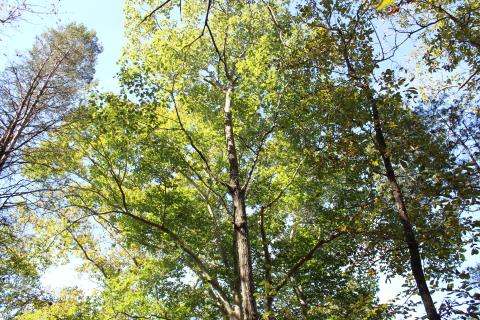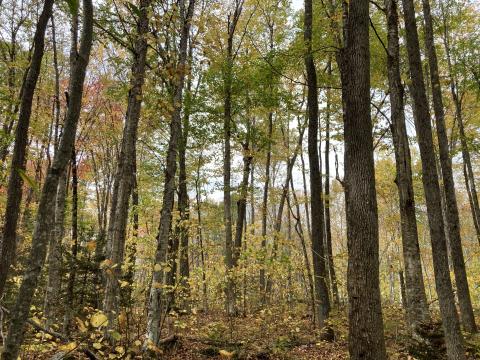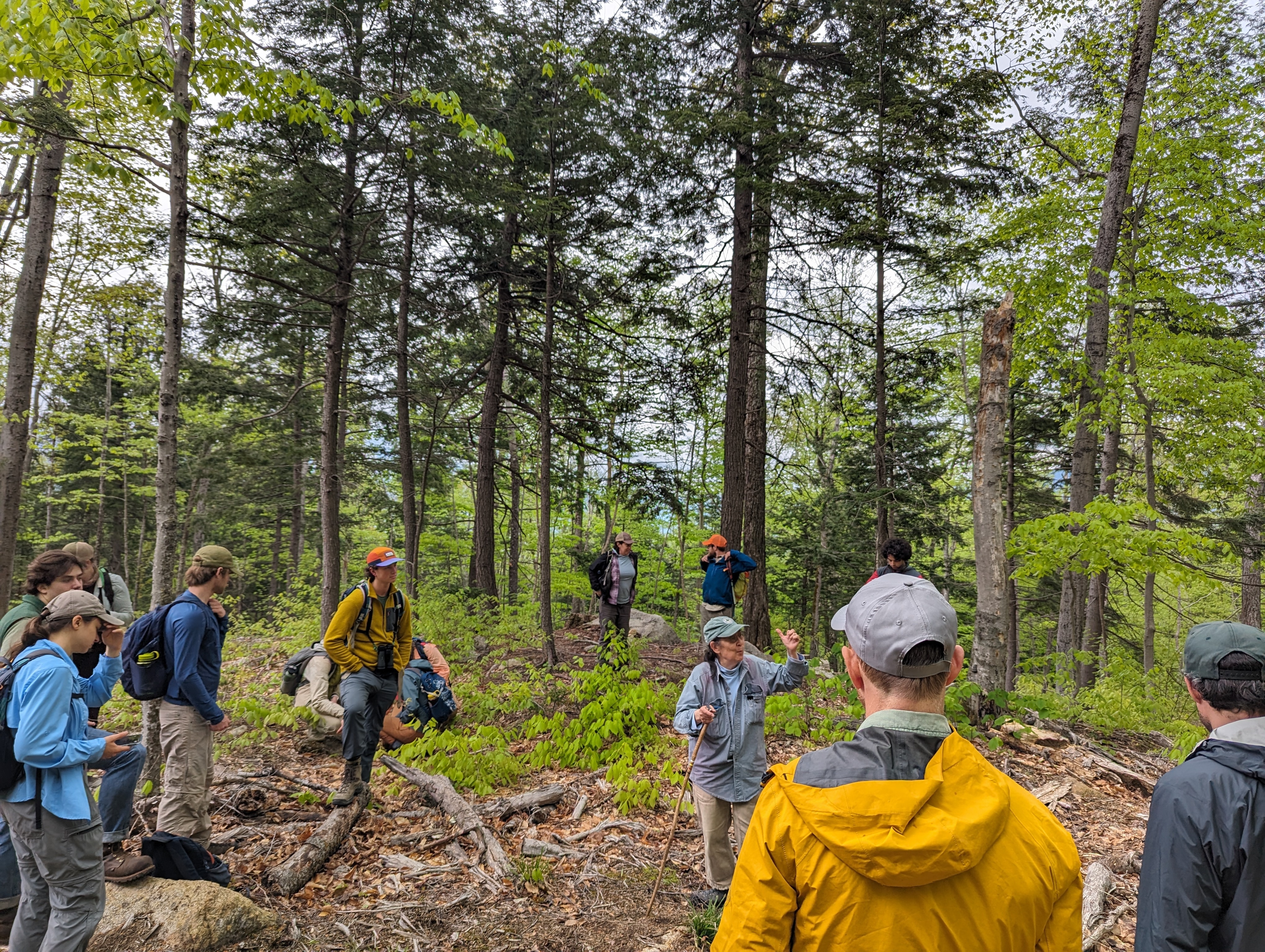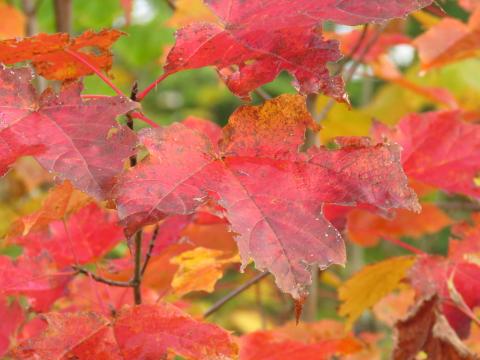2024 Annual Accomplishments of the Northern Forests Climate Hub
The USDA Northern Forests Climate Hub has worked hard throughout Fiscal Year 2024 to provide more outreach and training opportunities to new and familiar audiences, to identify new collaborative opportunities that bring partners together, and to develop products with partners.
The USDA Northern Forests Climate Hub has worked hard throughout Fiscal Year 2024 to provide more outreach and training opportunities to new and familiar audiences, to identify new collaborative opportunities that bring partners together, and to co-produce several products.
Continuing our strong emphasis on technical assistance and hands-on training, we delivered over 56 workshops and field demonstrations, organized 57 webinars, and delivered over 62 presentations, collectively reaching thousands of participants from various perspectives and locations throughout our 20-state service area.
Topics included climate change and carbon considerations in forests, ecosystems, watersheds, urban communities, and non-forested wetlands. Audiences included natural resource professionals and land managers from federal and state agencies, Tribes, municipalities, conservation organizations, and industry.
Highlights from FY24:
Collaborating to Communicate Best-Available Research
The USDA Forest Service Northern Research Station, USDA Northeast and Northern Forests Climate Hubs, and the Northern Institute of Applied Climate Science (NIACS) collaborated on three webinar series attended by over 1,100 participants. The “Rooted in Research” webinar series provides the best available science and highlights Forest Service research on topics of interest to professional land managers, researchers, and landowners. Titles for the webinars: Adapting to Extreme Weather “Wild Cards"; Changing Hydrology, Changing Landscapes; and Addressing Assisted Migration in Research and Practice.
The "Ecological Forestry in the Context of Climate Change" 12-month webinar series described how small- and large-scale forest disturbances, such as fire, wind, ice storms, hurricanes, sea-level rise, flooding, introduced and endemic forest pests, and others, impact forest ecosystems. The series also examined ecological silviculture and climate adaptation approaches to help inform forest and wildlife management. This webinar series was sponsored by the U.S. Fish and Wildlife Service (FWS) - Forest Ecology Working Group (FEWG), Science Applications and Migratory Birds Programs, and the National Conservation Training Center (NCTC) together with the USDA Northern Forests Climate Hub and the Northern Institute of Applied Climate Science (NIACS), a collaborative, multi-institutional partnership led by the Forest Service.
View all PresentationsSupporting National Forests to Integrate Climate Considerations into Planning
Addressing climate change in planning management actions on National Forest lands is a USDA Forest Service priority. This includes considering the impacts of climate change in integrated resource project planning efforts from an adaptation response and carbon stewardship perspective while balancing a wide range of ecosystem goals. To support National Forest planning, the Northern Institute of Applied Climate Science (NIACS) and NFCH hosted 21 training sessions attended by 393 USFS staff in the Eastern Region (R9) on carbon stewardship and adaptation planning.
Increasing Carbon Literacy
Carbon is a growing topic of interest for forested land owners, stewards, and managers. The Northern Forests Climate Hub (NFCH) and Northern Institute of Applied Climate Science (NIACS) are providing training, support, and resources to federal, state, and tribal natural resources agencies to share relevant science to support management activities that provide benefits for climate adaptation and carbon mitigation. The NFCH and NIACS coordinated several engagements to increase the capacity of land management agencies to engage in carbon stewardship. A three-part series provided carbon literacy and communication training to National Forest specialists in the USDA FS Eastern Region. Additionally, a four-part webinar series with the USDA FS State, Private and Tribal Forestry, and Michigan State University’s Forest Climate’s Carbon Program entitled "State and Tribal Capacity Building on Forest Carbon" informed and supported staff working in state and tribal agencies.
Read our quarterly reports for summaries of activities in fiscal year 2024 below.
-
1st Quarter Accomplishments

Highlights from October-December 2023.
-
2nd Quarter Accomplishments

Highlights from January-March 2024.
-
3rd Quarter Accomplishments

Highlights from April-June 2024.
-
4th Quarter Accomplishments

Highlights from July - September 2024.
Questions? Contact the USDA Northern Forests Climate Hub staff

